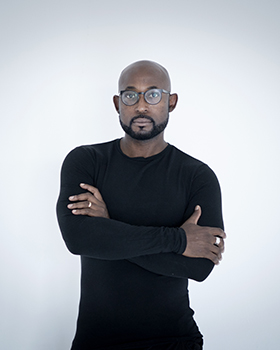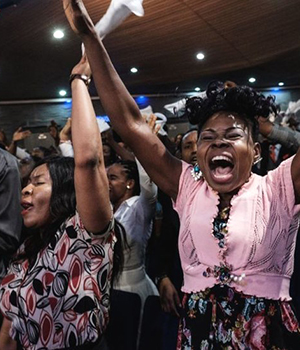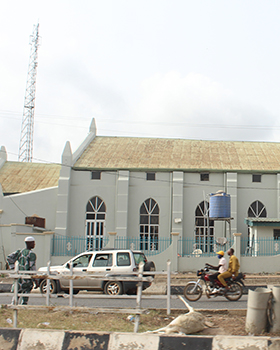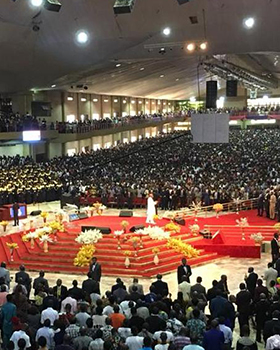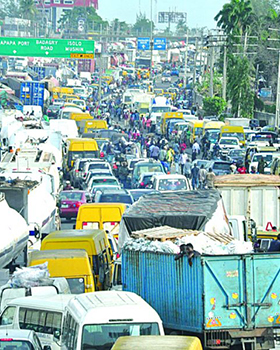

Features International Thrills: Femi Kayode
Africa Scene: Home is Where the Heart Is…And the Investigation
The Big Thrill Interviews Femi Kayode
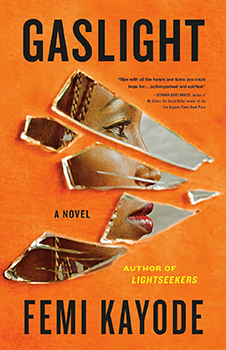 Femi Kayode’s debut novel Lightseekers received rave reviews. It was selected as a Best Crime Novel of the Month by the Times, Sunday Times, Independent, Guardian, Observer, Financial Times, and Irish Times. That was a hard act to follow! But Femi has done so with GASLIGHT, the powerful sequel featuring psychologist-detective Philip Taiwo. S.A. Cosby commented, “Femi Kayode is an unparalleled wordsmith,” and the Guardian said it was “Deftly plotted, with strong characterisation and a great sense of place.”
Femi Kayode’s debut novel Lightseekers received rave reviews. It was selected as a Best Crime Novel of the Month by the Times, Sunday Times, Independent, Guardian, Observer, Financial Times, and Irish Times. That was a hard act to follow! But Femi has done so with GASLIGHT, the powerful sequel featuring psychologist-detective Philip Taiwo. S.A. Cosby commented, “Femi Kayode is an unparalleled wordsmith,” and the Guardian said it was “Deftly plotted, with strong characterisation and a great sense of place.”
Femi Kayode trained as a clinical psychologist in Nigeria before starting a career in advertising and writing. He lives in Windhoek, Namibia, with his wife and two sons.
The Evangelical churches of Nigeria and their charismatic preachers seem to be hugely powerful and important. They also seem to generate huge amounts of money that don’t always end up at their intended destinations. In GASLIGHT, Philip discovers what that really means.
The leader of Grace Church, known simply as Bishop, is arrested for the murder of his wife, Sade, who has disappeared. The church elders ask Philip to investigate. He’s ambivalent, but eventually, he’s persuaded. His skills soon allow him to deduce that the police understanding of the situation is way off, and he obtains Bishop’s release. However, that’s only the beginning of the story.
Philip seems much more sure-footed in GASLIGHT. Is that because he has more experience, or is it because he’s on his home ground?
You will recall that this case happened exactly a year after the Okriki three case in Lightseekeers. Philip has been back in Nigeria for almost two years now. He is certainly more sure-footed and experienced in navigating his way around Nigeria, specifically Lagos. But I’d like to think that he is self-aware enough to know he cannot fully understand a society he’s been away from for almost three decades. And that Nigeria is not a monolith to be compressed into a one-size-fits-all model. I think he knows that whatever learning he took from previous events, investigations, and experiences are part of an evolution. So yes, he is more sure-footed, but certainly not to the point of being a self-sufficient, larger-than-life super-sleuth.
To my mind, I think his evolution to this level of confidence is knowing where he needs help and when to ask for it. Or, in this case, who to ask for help. I think this is an admirable trait in Philip. This ability to put his ego aside to learn, to grow, and most importantly, to solve the mystery that he has been hired to investigate. I think he was humbled by his experience in Lightseekers. He now knows that to navigate the complexities of solving a case in Nigeria, he needs the support system of his wife, his friend Chika, his extended family, his boss, his students, and more.
Chika now has a successful security business in Lagos. He and Philip are still a team, but now Chika is more on the high-tech side, although he can still be a man of action when the chips are down. Do you see them as having complementary roles, each showing an opposite side of the other?
Definitely. I have always loved an old The Economist print advertisement that asks something like ‘Would you sit next to you at a dinner party?’ Chika and Philip were designed to be yin-yang of each other, and over time, there will be areas of overlap and assimilating from each other, but essentially, they are two different people with different approaches to life and situations. I think what binds them together, beyond the basic likeness that friends have for one another, is the fact that underneath all those obvious differences, they have very similar values. It is a values-based relationship built on mutual respect. I think those are the most enduring relationships.
In Lightseekers, Philip was away from home for much of the story. In this book, he is much more involved with his family and the problems they face being “at home” and “away from home” at the same time. Race and history are involved, and the dynamics and the threats they face are powerful challenges. Would you comment?
It’s interesting. I never saw it that way, but you are quite right. Philip was away from home during almost all of Lightseekers. And I recall the ending of that book was that one word: ‘Home.’ In GASLIGHT, he is (now) at home, and the dynamics of his relationship are markedly different. I think this is what drama is all about—you place three-dimensional characters in different situations, and you experience them as they navigate through the challenges in ways that push them to the edge, mold them, and, hopefully, change them.
It has always been important for me that Philip is a wholesome, committed family man. His approach to his work must also reflect this commitment. It is inconceivable to me to assume that Philip would go to work to solve this missing-person-turned-murder case and not leverage or learn from whatever is going on in his family life. I have found it rewarding to speak with readers who have noticed the parallel between his daughter’s experience and that of Sade Dawodu. Or the juxtaposition of parenting styles of Sade’s parents and Philip and Folake’s. There are common themes between the case and what is happening in Philip’s family, and that was necessary because of the kind of person Philip is.
Sade, the Bishop’s wife, is a rich character. You had to solve the problem of developing her and having her tell some of her story and motivation in her own way without her appearing on stage. How did you come up with the solution to that?
Oh, I struggled! I think the solution came from my dogged determination to develop a victim who had agency. I refused to let her go gently into the good night. She is key to solving the case, and I needed her to be in constant engagement with Philip and also the story. So, once again, it goes back to the parallels of what is happening in the case and what is happening at home. It’s deliberately subtle, but it’s there. That’s why Philip’s daughter’s issues are uniquely feminine. The other solution was having Sade keep engaging with people, even when she is not physically around. And remember the title, GASLIGHT. The idea that the reader is also not quite sure what is real and what is not is a deliberate ploy to get us to engage with Sade more. I don’t know whether it was an effective solution, though, but I like the fact that, like her or not, Sade is very present throughout the whole novel.
The book addresses big themes, including the male-dominated culture of the churches, and that absolute power corrupts absolutely. Did you set out with these issues in mind, or did they develop naturally from the characters and their stories?
I am very intentional when I go about designing stories. As soon as characters are formed in my head and the general plot of the story is clear, I take on the challenge of themes very early on—many times before I start writing. In a running series, I like binding characters to themes—what themes would likely emerge if I pit a feminist like Folake (Philip’s wife) against a traditionalist? Or a man of action like Chika against an intellectual? So yes, the themes are very much part of my story design process, but I do let the characters guide me as to how they would react to each issue and how such reaction drives the story forward.
You’ve commented that everything you heard about “The Difficult Second Novel” is true. What did you find most challenging about writing the sequel to Lightseekers?
Starting. Starting was difficult. The story was quite strong in my head, but I found starting extremely difficult. When I did start, I think I had the pressure of performance. Lightseekers was relatively successful for a debut, and I felt I had to outdo it. And because I was a debut writer, all criticism stuck. I would start writing, and all the good feedback disappeared, and I would only remember the bad. It takes a very special human to close their mind to all the negatives on your first attempt at anything while embarking on a second attempt. So yes, I wanted this one to be better. I wanted to show that I had grown or learnt something from my first rodeo, that I wasn’t a one-trick pony. And all that pressure has the counterintuitive effect of freezing you.
To get moving, you need support systems you didn’t need with your first attempt. So, in a sense, it’s like you’re starting all over. It’s like learning to walk all over again after you’ve been in a coma for a spell. It’s difficult because you know you’ve done it before, and you’re frustrated because you can’t just get up and go. One piece of good advice I got from my editor was this: pretend this book has nothing to do with the first. Just let this story unfold naturally as if you’ve never done it before. It helped. You embrace the fear and insecurities and use them as fuel to take the first step. And then the next.
Are you planning another challenging case for Philip Taiwo? If so, could you tell us something about it?
Yes. I am currently working on Book 3, where Philip is investigating a plane crash in Nigeria. And that’s all I can say about it for now. Although I must add, The Difficult Third Novel is a real thing.
You can follow Femi on Twitter @FemiKay_Author.
International Thrills: Femi Kayode
- Out of Africa: Annamaria Alfieri by Michael Sears - November 19, 2024
- Africa Scene: Abi Daré by Michael Sears - October 4, 2024
- International Thrills: Fiona Snyckers - April 25, 2024

